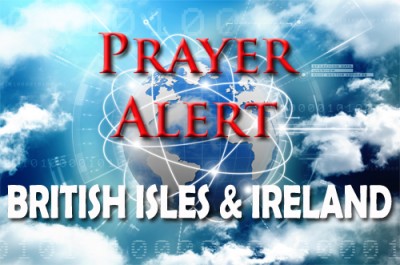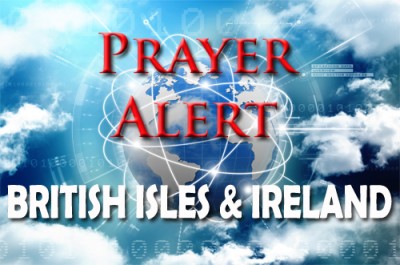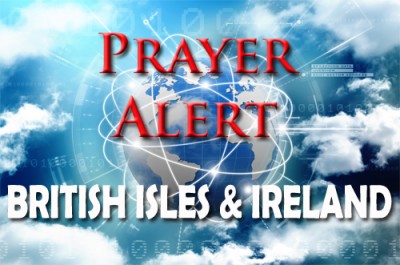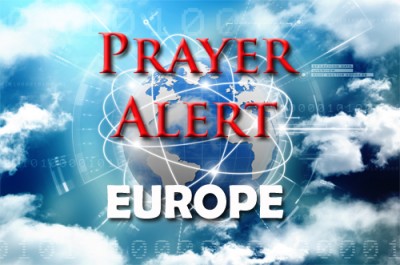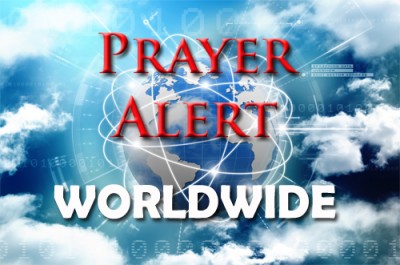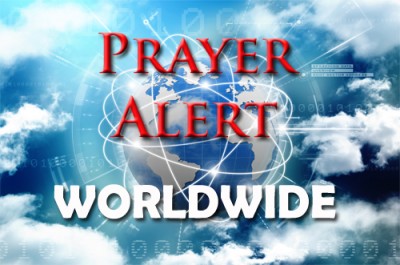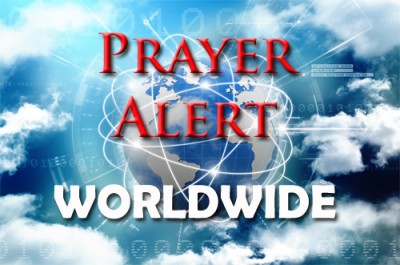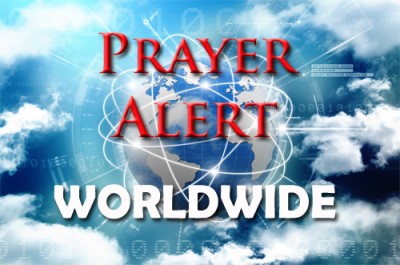Domestic violence – the facts
07 Apr 2017Two women are killed every week in England and Wales by a current or former partner (Office of National Statistics, 2015). One in four women in England and Wales experience domestic violence in their lifetimes, and 8% will suffer domestic violence in any given year (Crime Survey of England and Wales). Domestic violence has a higher rate of repeat victimisation than any other crime (Home Office). Every minute police in the UK receive a domestic assistance call; police say that there are greater dangers in our nations from domestic violence than terrorism. Yet it remains a hidden danger. 1.8 million adults were victims of domestic abuse last year. Much violence can be due to addictions and mental health problems. We can pray for victims to have the courage to seek help, and for the perpetrators to receive help and deal with their anger in a healthy way. Pray for children who witness or are victims of violence.
Clergy Hosting
07 Apr 2017Since its launch last December, Clergy Hosting has attracted eleven clergy to take up the challenge and to offer hospitality to destitute migrants and asylum-seekers. They know through conversations that there are many more clergy and lay people who want to open up their homes and provide this vitally needed welcome. They are hosting an information evening in London on 20 April where clergy who are already hosting guests will be sharing their experiences alongside those being supported by Clergy Housing. People who attend this or any other open evening will learn how the Housing Justice scheme works and be able to ask questions about it.
British attitudes to religion in workplace
07 Apr 2017A new study on British cultural attitudes at the workplace has found that religion has become the butt of jokes. Workers who would never make sexist or racist jokes feel free to mock faith instead. The recently released ComRes study warned that as many as a million workers may have faced harassment, discrimination or bullying because of their religious beliefs, with some saying they're uncomfortable about mentioning they pray or go to church. James Orr, a fellow in theology, ethics and public life at Oxford University, wrote a report titled ‘Beyond Belief: Defending religious liberty through the British Bill of Rights,’ saying that such targeting is clearly a problem, but questions of humour are not clear-cut. If one is confident in one's belief, one should be able to accommodate and put up with a bit of mocking and humour.
Germany: politicians’ prayer breakfast
07 Apr 2017This year Germany will have elections at the national and local state level. There is one decisive factor that we can pray into. It is the preamble of the Federal Constitution (referred to as the Basic Law of the German Federal Republic), which reads as follows, ‘In awareness of their responsibility to God and man, the German people have drawn up for themselves this constitution.’ Such a reference to ‘God’ by political leaders is very unusual in Europe. It originated in 1949, after the Nazi period. The Germans know what happens when politicians take responsibility for their work only ‘before man’. Also, once a month members of parliament from a cross-section of all parties meet at a prayer breakfast before the start of the parliamentary sitting. In this place of prayer they always have the example of the person Jesus of Nazareth before them. May Germany’s politicians powerfully meet Jesus in these meetings.
Russia: St Petersburg bomber was from Kyrgyzstan
07 Apr 2017The safety of the Russian people depends upon President Putin’s response to the St Petersburg attack. If the President rounds up more Chechen activists or pounds what’s left of Syria’s cities, then he will only provoke another murderous attack on a train. Russia’s involvement in Syria’s war is one motive, the long-running conflict in Chechnya another. Whichever group may have been responsible, or whichever terror organisation inspired some lone individual, the response of Russia, many believe, is likely to be one of further repression and an appeal to nationalist sentiment. This has been the Putin way for as long as he has exercised power in his land. Pray that this event would not bring another twist to the cycle of violence in the region.
Venezuela: Church supports right-wing violence!
07 Apr 201782% of Venezuelans live in poverty. Opposition lawmakers attempted to fire judges accused of a judicial ‘coup’ to keep socialist President Nicolas Maduro in power. Youths build barricades, burn rubbish and hurl rocks at soldiers and police, who respond with tear gas and water cannon, in the political turmoil. This violent political crisis is raising concerns for democracy and stability in this volatile major oil-exporting country. While Venezuelan churches usually ask parishioners to help spread peace and love throughout their communities, now in Caracas the Episcopal Church’s bishops are calling parishioners to support violence against the government. They handed out leaflets last Sunday, calling on members to participate in civil disobedience against President Maduro and the ruling United Socialist Party. The leaflet said, ‘It is time to ask very seriously and responsibly if civil disobedience, peaceful demonstrations, just claims to national and international public powers, and civic protests are not valid and timely.’ The Church called the government ‘morally unacceptable and therefore reprehensible.’ See
Paraguay: unrest
07 Apr 2017In 2014 shocking corruption was reported in Paraguay. The frontrunner in the presidential election, Horacio Cartes, described as a homophobe, was jailed after accusations of currency fraud, investigated for alleged tax evasion, and widely accused of drug trafficking. He is now President Cartes, attempting to run for office again in 2018. This decision led to protests and violent unrest. Police killed one protester. Cartes’ attempt to seek the second term in office has been through behind-the-scenes wrangling. By constitutional law he should not run for office again. The first round of talks to settle the volatile political crisis around his attempt for re-election ended with no progress on Wednesday. Oxfam reports that 90% of the land is owned by 5% of the population. The government talks about presidential re-election and constitutional amendments while the people are without schools or health services. See
Malaysia: full sharia law?
07 Apr 2017Moves are under way in Malaysia that could see parts of the country implement full sharia law with inhumane punishments; there are reports that the Deputy Prime Minister could agree to support this in parliament. Currently sharia courts have limited jurisdiction in family matters, with the main criminal courts operating at federal level making decisions based on the constitution. Even this situation can create significant problems for Christians, particularly converts from Islam. Their conversion is not recognised in the sharia court system, so they are still officially Muslims. Christian women converting from Islam cannot legally marry a Christian man, as sharia forbids Muslim women from marrying non-Muslims. There have been several previous attempts to extend the jurisdiction and sentencing powers of the sharia courts, with bills that included amputation of limbs for theft and death for blasphemy and apostasy. Government can only implement this if parliament changes the constitution.
